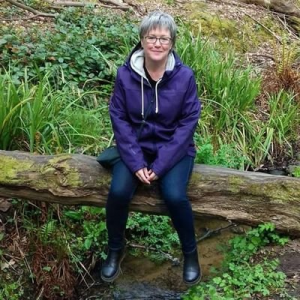 Lynn has a number of areas of specialism, including: food microbiology; food safety in poultry, meat, dairy and produce production (particularly Campylobacter, Salmonella, Listeria and E. coli); food preservation methods; evaluating the shelf-life of foods through durability and challenge testing; rapid detection methods for hygiene and safety (for example electronic new and biosensors).
Lynn has a number of areas of specialism, including: food microbiology; food safety in poultry, meat, dairy and produce production (particularly Campylobacter, Salmonella, Listeria and E. coli); food preservation methods; evaluating the shelf-life of foods through durability and challenge testing; rapid detection methods for hygiene and safety (for example electronic new and biosensors).
Her excitement for food microbiology stems from when she was a summer student working on a project to develop rapid detection method for Listeria in dairy products at a Scottish research institute.
An opportunity to go overseas for her PhD led her to Canada and later to New Zealand where she worked as a senior lecturer at Massey University, latterly as a senior research scientist, managing food microbiology contract research for the NZ Food Safety Authority.
Lynn has been back in the UK for 10 years and enjoys a diverse range of roles and responsibilities at Harper Adams, including teaching, research, knowledge exchange, biosafety, and health and safety. She’s also excited to be taking yup the role of Course Tutor for International Food Programmes in September.
She said: “For me, academic knowledge only started to come alive when I could see it applied to a real world problem. To be honest, doing my honours research project in a brewery was definitely the high point of my undergraduate experience! That, plus my summer job at the Hannah Research Institute in Scotland, inspired me to continue with food research, and I learned so much and met so many inspirational people during my PhD.
“A career in food is varied, transferable and creates so many opportunities. I had no idea at the time when I decided that food microbiology was going to be my thing, that I would go on to live and work in different countries, and to travel as part of my day-to-day job. I was really lucky to get involved in an EU-funded food education project called ISEKI_Food when I was still living in New Zealand, and got to travel three times a year throughout Europe and to Brazil to attend project meetings.
“I also travel to China every year to teach the second-year students at Beijing University of Agriculture and my research activities have taken me to Indonesia, Australia, the USA and New Zealand to present at conferences.
“Food safety sits at the heart of so many aspects of food technology, and I relish the challenge of getting students to appreciate its importance. I see that lightbulb moment for many students happening during a case study, an industry guest lecture, a factory visit or on placement. I run a lot of practical sessions in my module teaching to engage students in ‘real life’ activities (including health and safety!), and use results generated by students for assessments as well. Wearing a lab coat and safety specs is second nature to me and I want my students to feel as comfortable in that environment as they do in other food-related activities and environments.”
